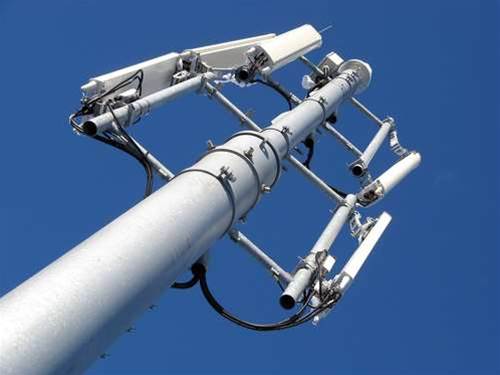Internode has revealed it pays around $3100 per megabit in wholesale 3G costs to provide a wireless broadband service to its customers.
Carrier relations manager John Lindsay contrasted this with the cost of providing fixed line internet services from the Adelaide exchange his own home service was connected to.
“It costs $110 a megabit to get the internet to me because we own the path all the way to the internet,” Lindsay said.
“But at the same exchange we have Telstra Wholesale ports and a customer connected to them costs us $200 a megabit.
“[But] it’s $3100 to get the internet out to one of those sticks on 3G. This is the fundamental problem with the wireless access network. Spectrum is really expensive and accountants have this weird desire to demonstrate solvency to their investors. I don’t understand it,” he said.
The numbers were “rounded up or down to protect the guilty or non-disclosure agreements” that Internode had in place with suppliers, he said.

1.5 Mbps the new standard
Lindsay also produced a graph of ADSL customers that showed the spread of Internode customers on Telstra Wholesale ports across various speeds and price points. He did not produce a similar graph for customers on the ISP’s own DSLAMs.
“Almost half are on 512k and there’s a handful on 256k plans - what we effectively refer to as ‘fraudband’ because it’s like a dial-up model only more expensive,” he said.
“[256k] has been trashed by 3G modems and 512k would appear as of last week to be headed for the scrap heap because Telstra seems to have decided 1.5 Mbps is the base model [for its ADSL services].
“Frankly I think the rest of the industry will follow suit.”
Internode scrapped both in a separate announcement this morning - making its new entry point a 1.5 Mbps service with a 5GB download quota for $49.95.
“Internode has eliminated 'fraudband' and now offers all new customers at least a 1.5 Mbps ADSL service, plus options to go much faster for those who need it,” said managing director Simon Hackett.
“256k and 512k ADSL speeds are so '2001' – and now they're gone.”
NBN Co's challenge
Lindsay said the graph also showed that the $40 to $50 price point was most attractive to customers, even among relatively heavy users.
“We’ve got customers who i call leechers that take the product all the way to the wire and actually go beyond the end of the wire and get more than 100 percent of their cap,” he said.
“Some people exhaust their cap on the first day of the month and continue to suck on their cap for the rest [of the month at a throttled speed].
“I don’t get it. But clearly they’re on a budget. They have a [monthly] price cap and that’s their chosen way of [keeping to it].”
Like others at the conference, he believed the challenge for NBN Co would be pricing its services within the price levels consumers deemed acceptable to their wallets.
“They’ve got to come up with an access model for pricing that fits with the $50 per month for broadband and $30 a month for voice services [that customers will pay],” Lindsay said.
“It also needs to generate some sort of margin for retail service providers.”
iiNet chief Michael Malone also said yesterday he believed “the magic number for broadband is $50.
“Average revenue per user across the industry seems to converge on that,” he said yesterday.
Malone said that when Telstra bumped up access costs in 2005, iiNet gave customers a choice of seeing their monthly costs increase by $15 to $20 per month or dropping down to a lower speed.
“Four percent took the higher price and 96 percent took lower speeds,” Malone said.
“Pricing really matters in this market.”
Node DSLAMs "carry" business
Internode’s Lindsay produced yet more figures that purportedly showed Internode sold 40 GB plans at a loss of $10 per month.
Losses were recouped in part from the third of its customer base - some 65,000 - connected via Internode’s own DSLAMs.
Using the same calculation method, Lindsay said a 100 GB plan that cost Internode $90 per month could “fortunately” be sold for $129.95 a month.
“Our customers on our DSLAMs are what carries our business,” he said.




_(33).jpg&h=140&w=231&c=1&s=0)






 iTnews Benchmark Awards 2026
iTnews Benchmark Awards 2026
 iTnews Executive Retreat - Security Leaders Edition
iTnews Executive Retreat - Security Leaders Edition
 iTnews Cloud Covered Breakfast Summit
iTnews Cloud Covered Breakfast Summit
 The 2026 iAwards
The 2026 iAwards












_(1).jpg&h=140&w=231&c=1&s=0)



